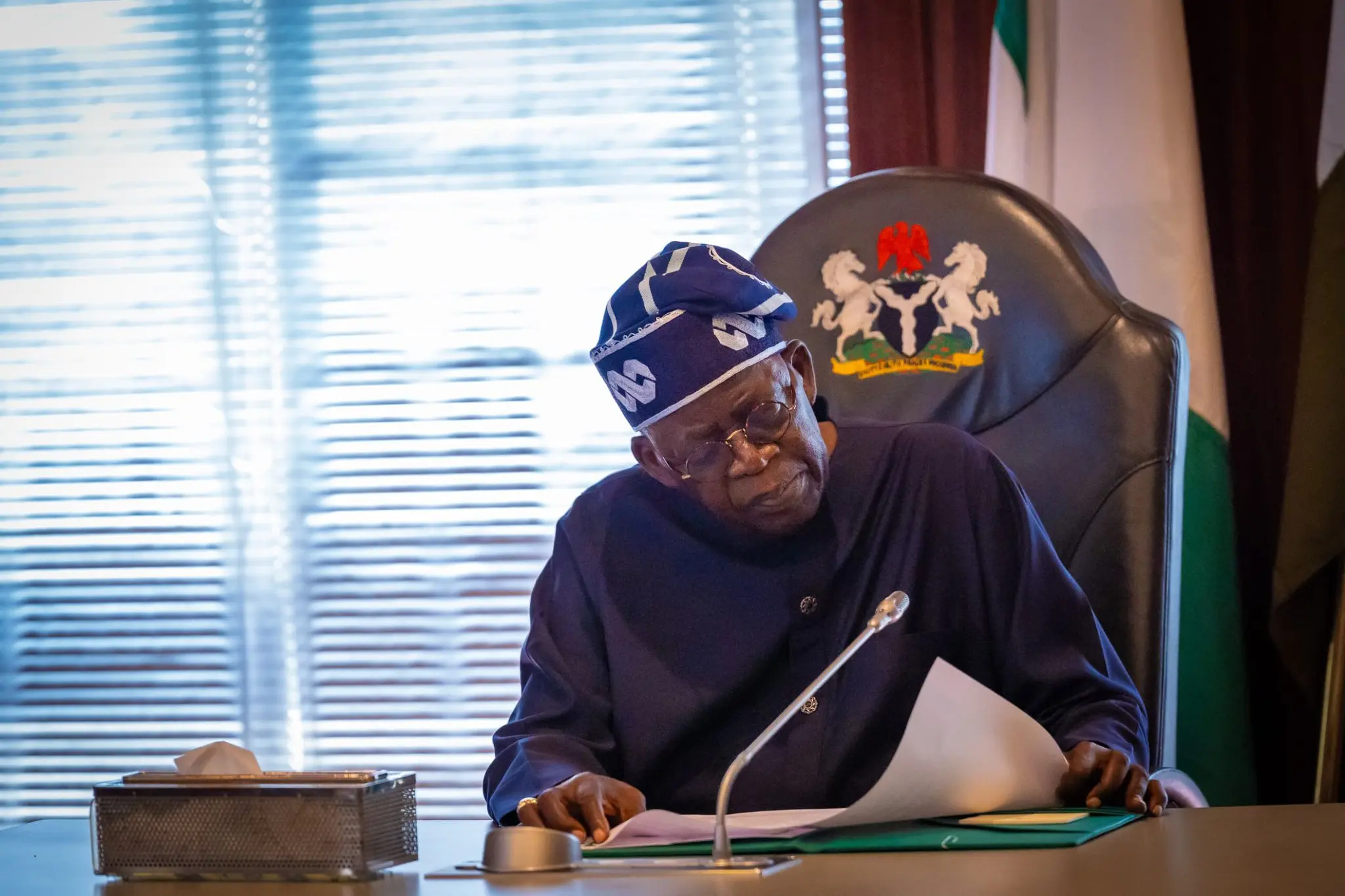Why Nigerians hold Tinubu Accountable by Moghalu on Inside Sources
Chief George Moghalu, founding National Auditor of the All Progressives Congress (APC), has shed light on why Nigerians hold President Bola Ahmed Tinubu accountable for the country’s current state of affairs. According to Moghalu, as the leader of the nation, Tinubu bears the primary responsibility for addressing the nation’s socio-economic challenges and delivering on his […]

tinubu neww
Chief George Moghalu, founding National Auditor of the All Progressives Congress (APC), has shed light on why Nigerians hold President Bola Ahmed Tinubu accountable for the country’s current state of affairs.
According to Moghalu, as the leader of the nation, Tinubu bears the primary responsibility for addressing the nation’s socio-economic challenges and delivering on his campaign promises.
Chief Moghalu opened the conversation by acknowledging the difficult circumstances under which President Bola Tinubu assumed office.
“I sympathize with them because they came into the political set up when the situation had really gone bad,” Moghalu stated on Inside Sources, , referring to the dire economic situation Tinubu inherited.
However, Moghalu was quick to note that this did not absolve the President of responsibility.
“You wouldn’t stop anybody from blaming them because the bulk stops at the President’s table,” he added, underscoring the accountability expected of the head of state.
Moghalu emphasized the gravity of the current economic challenges facing the country, such as rising inflation, unemployment, and an unsustainable debt burden. Although he expressed some optimism about the government’s potential to stabilize the situation, he also acknowledged that the current efforts have yet to yield significant results. He urged Nigerians to give the administration time to find its footing.
On his part, Mr. Martin Onoja, a columnist for The Guardian, was more critical of President Tinubu’s cabinet.
He emphasized the lack of visibility and performance among the ministers, stating, “Sometimes, you use Google to look for the names of Ministers of the Federal Republic of Nigeria because of their obscurity.”
According to Onoja, this obscurity stems from non-performance and the absence of decisive action. He called for an urgent shake-up in the bureaucracy, particularly in key positions such as the Secretary to the Government of the Federation, the Head of the Civil Service, and the Office of the Chief of Staff.
“There’s no coordination,” Onoja lamented, stressing that inefficiencies in the civil service have made governance sluggish.
Onoja went further, describing the civil service as a “bundle of mediocrity” and stressing the need to prioritize competence and efficiency. He expressed frustration with the practice of leaving political aides in the system after the departure of their principals, which he argued undermines efforts to foster meritocracy.
Mallam Baba Yusuf, former Managing Director of the Nigerian Aviation Handling Company (NAHCO), echoed these sentiments. Drawing on his experience, he emphasized the importance of performance evaluation in governance. “In the private sector, they give you six months to deliver, and if you’re not performing, you’re out,” Yusuf said. He voiced concerns over President Tinubu’s apparent confidence in his cabinet, which the President expressed during a recent visit to China. Yusuf speculated that Tinubu’s comments might have been made to save face but pointed out that many Nigerians are eagerly awaiting a cabinet reshuffle.
Yusuf also criticized the lack of relevant experience among some political appointees, noting that a few even have ongoing corruption cases. He stressed that a cabinet reshuffle is not merely a matter of optics but a necessary step to address the country’s pressing economic and governance issues.
The panel also addressed the recent arrests and arraignments of protesters involved in the #EndBadGovernanceInNigeria movement, who have been accused of terrorism, treason, and financing terrorism. Mr. Onoja criticized the government’s heavy-handed response, stating, “The optics are really very bad. People have the right to protest, especially given the current economic hardships and hyperinflation.” He argued that the protesters were raising legitimate concerns about the worsening economic conditions, not attempting to overthrow the government.
Mallam Yusuf, recalling President Tinubu’s days as a pro-democracy activist, urged the government to take a more measured approach to dissent. “The President was in opposition for a long time. He was in the trenches fighting for democracy. He knows what it means for people to fight for what is right in this country,” Yusuf said. He warned that charging protesters with treasonable felony could inflame tensions, especially given Nigeria’s small military relative to its population of over 200 million people. “Treasonable felony will not stop the next protest uprising,” Yusuf cautioned.
The experts agreed that addressing the growing discontent in the country requires more than force. Yusuf urged the government to “face reality,” emphasizing that repression will not quell public dissatisfaction in the long run. Instead, the panel called for a responsive and competent administration, beginning with a cabinet reshuffle that prioritizes merit and performance.
